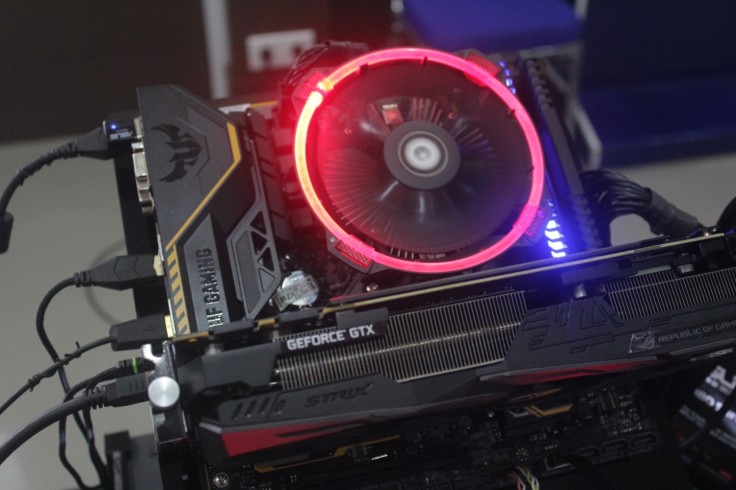
News about the release of Nvidia's RTX 3080 excited a lot of users, particularly PC gamers set to use their systems for those next-generation titles.
However, the release of the GeForce RTX 3080 FTW3 hit a snag due to some testing faults, Gamers Navy reported. Nvidia announced that the rollout of the GPU has been delayed after some issues were raised during testing.
Nvidia Exec Reveals Reason behind Product Delay
According to Nvidia product manager Jacob Freeman, the team discovered "a full 6 POSCAPs (conductive polymer tantalum solid capacitors) solution cannot pass the application testing," Gamers Navy stressed in the report. Freeman said it to almost a week for the company's research and development team to address the problem. As they brought down the POSCAPs to four and added 20 multi-layer ceramic capacitors (MLCC) before shipping the boards, the company eventually decided to put the EVGA GeForce RTX 3080 on hold because they were not able to produce and ship the 6 POSCAP-manufactured RTX 3080 FTW3 boards.
Product reviewers evaluating the GPU, however, were able to use a limited number of pre-manufactured units of the EVGA GeForce RTX 3080 FTW3 that had 6 POSCAPs, Freeman added. He said Nvidia is coordinating with these reviewers to replace their boards with tested production units.
But those users who did advance testing of the product reported crashes, including a flickering black screen, while playing desktop games. These affected users said the crashes happen in games wherein their GPU boost clock rate hits around 2GHz or more.
The Gamers Navy report said that the reason behind those crashes cannot be determined as of yet. However, they suspect that the cause could be the drivers, poorly arranged GPUs, power supply concerns, or a combined set of problems.
Possible Solutions to Address RTX 3080 Crashes
Because of this, some users analyzed the problem closely and found fixes to address the issue. First they used brand-new, updated Nvidia drivers and dialed back the maximum GPU Boost clock in those RTX 3080 units to prevent the crashes from happening. However, the root cause of the problem remains unknown.
Users can also attempt to slightly reduce the GPU's speed by utilizing third-party apps, such as MSI Afterburner or EVGA's Precision X1. Such apps are normally used to increase clocking speeds, but in this case, they can be utilized as well to lower the clock speed as well.
However, users who encounter crashing report that lowering the clock speed can also cause a system halt. To avoid this, users can start with a slightly smaller number, and not a dramatic reduction in clock speed to prevent crashing. Reducing this speed will also lower prime performance.
Undervolting, or reducing the amount of power or voltage being directed to the graphics card, is another wise choice that could enhance power efficiency, but this may be too complicated for the average user.
As such, users might have to wait for Nvidia's eventual updates and fixes to the EVGA GeForce RTX 3080 FTW3 before they could achieve ideal, optimal, crash-less performance from the card.









